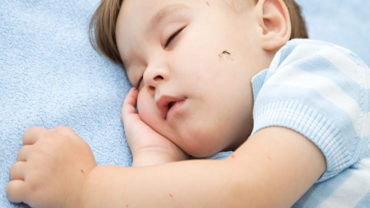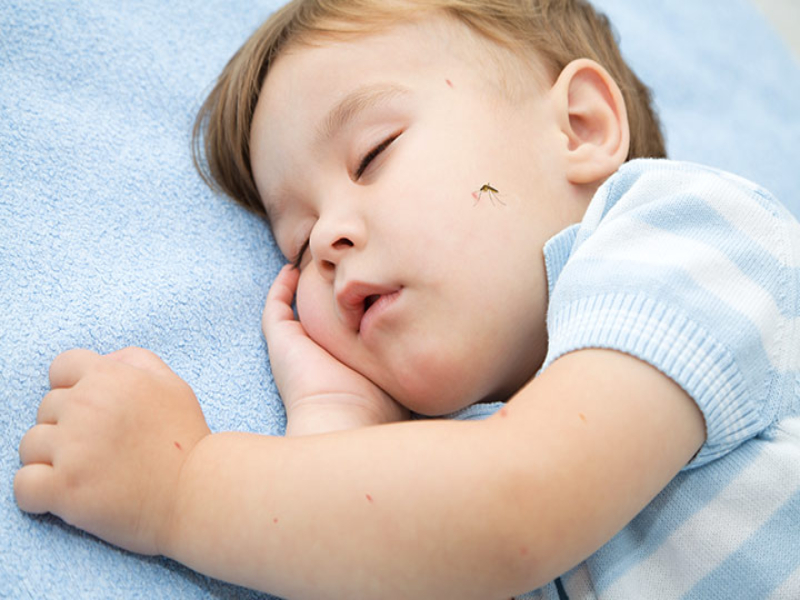Mosquitoes are insects that belong to the fly family. They have short lifespans whereby female mosquitoes typically live for a couple of months while male mosquitoes can only live for a week. Despite their short lifespan, mosquitoes can cause tons of health issues to us!
Insect bites on kids are common, but the effects these bites are different from one kid to another.
For some, mosquito bites on kids could cause itchiness, swelling, and inflammation. In worse cases, it could even transmit fatal diseases such as West Nile Virus, Encephalitis, Dengue Fever, and many more.
If you are concerned about mosquito bites on your kids, check out the following article for 6 effective ways to treat the mosquito bites in your kids!
Via Mom Junction: 6 Effective Tips To Treat Mosquito Bites In Toddlers
Toddlers are often bitten by mosquitoes even before they know it. The itchy nuisance that these insects create can make your toddler highly irritated.
It is very important that you take measures to prevent mosquitoes your toddler from mosquito bites. Though not very common, mosquitoes can cause serious diseases like dengue, malaria and West Nile Encephalitis. The itchy bites, when scratched, lead to scarring and scabbing. Prevention is thus the best strategy.
9 Ways To Proteqct Your Toddler From Mosquito Bites:
You need to protect your toddler from mosquito bites. Here is what you can do:
1. Use protective clothing that covers his arms and legs. Wearing socks is also a good idea to protect him from the bites.
2. Make your toddler wear light colored clothes and avoid flowery prints to keep away the mosquitoes.
3. Rather than applying insect repellent on his body directly, you can apply it on the clothes and rub gently. The repellents you use must contain eucalyptus oil, picaridin or geraniol. It must not come in contact with his hands and eyes.
4. You must never rub DEET products on the clothes of your toddler. The chemicals can cause potential harm to his skin.
5. Using a mosquito net at home is a good practice that you should follow. You can keep one handy in your car and carry it wherever you go.
6. Keep your toddler away from areas that have too much of mosquitoes. Stagnant water and woody regions are highly inhabited by these pesky insects. Keep your toddler away from motionless water.
7. You must look out for empty garbage cans, unused toys or portable pool for your toddler that are also suitable breeding grounds.
8. If you have broken window seals, repair them. Keep the doors and windows closed if you face the problem of mosquitoes where you live. Use a fan or an air conditioner instead.
9. You must be particularly vigilant with your preventive techniques during dusk when mosquitoes are most active.
6 Effective Tips To Treat Mosquito Bites In Toddlers:
Toddlers usually become an easy target for mosquito to bites. Here is what you can do while treating mosquito bites in toddlers.
1. If you find your toddler scratching the affected area, apply ice to prevent swelling and itchiness.
2. You can also apply a roll-on deodorant containing aluminum chloride.
3. To treat the bite you may also apply calamine lotion.
4. Continuous scratching may break finger nails into the skin and cause growth of bacteria. So ask your toddler not to scratch it.
5. In case you find any signs of infection like pus, redness and swelling, call the doctor.
6. If symptoms like vomiting, nausea, fever and headache persist, you must immediately notify the doctor.
Symptoms Of Allergies From Mosquito Bites:
Some of the common symptoms of allergies that you should look for are as follows:
- Lymphangitis
- Hives
- Wheezing
- Red patches
- Swelling of the throat
You should immediately see a doctor as these symptoms can be life threatening. Apart from being concerned about the allergies, you must also consider the dangerous diseases transmitted through mosquito bites.
When To Be Extra Alert For Toddler Mosquito Bites?
In the following cases, you must take your toddler to a doctor at the earliest, by doing this you can provide mosquito bite relief for toddlers.
- If you find reactions occurring in different body parts and he complains of difficulty in breathing.
- In case itchiness or swelling gets worse.
- If your toddler complains of pain in the affected area and it does not subside even after some days.
- If any other things are bothering your toddler.
There is no way you can avoid mosquito bites completely, but you can definitely minimize the chances. You should be more careful and vigilant of where your toddler is playing so that he is less prone to such bites.
Moms tell us what you do to protect your little one from mosquito bites.












